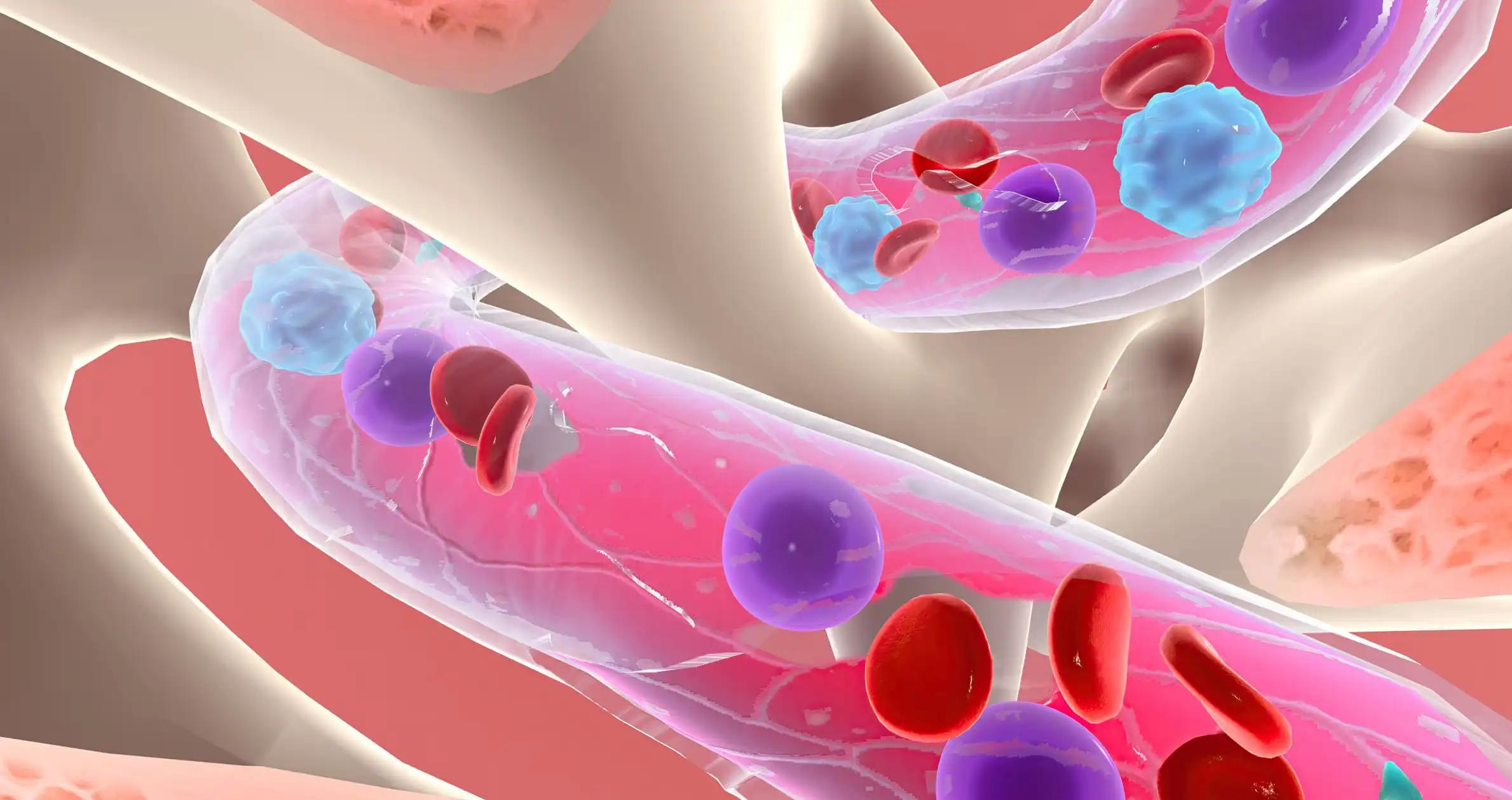KEY TAKEAWAYS
- The phase 3 trial aimed to evaluate the efficacy and safety of rituximab-lenalidomide maintenance vs. rituximab alone in responders to induction therapy over a 2-year period.
- The primary endpoint was to assess EFS and OS.
- The result concluded that R2 maintenance enhances PFS without OS benefit. Increased toxicity was observed.
Mantle cell lymphoma (MCL) remains a challenging disease to cure. Recent studies in younger patients have shown the benefits of using cytarabine in the initial treatment and adding rituximab, along with lenalidomide maintenance.
Vincent Ribrag and other researchers in the MCL-R2 elderly trial aimed to determine if using an intermediate dose of cytarabine during induction could improve long-term outcomes in elderly patients (above 60 years old). Among those who responded to the initial treatment, they were randomly assigned to either a two-year maintenance therapy with rituximab-lenalidomide (R2) or rituximab alone. The results of these two randomizations were presented.
Patients aged over 60 years who couldn’t undergo high-dose therapy for stage II-IV MCL were enrolled. Initially, they were randomly assigned to receive either 8 cycles of R-CHOP (rituximab, cyclophosphamide, doxorubicin, vincristine, prednisone) every three weeks or 6 cycles of alternating R-CHOP every three weeks and R-HAD (rituximab, cytarabine, dexamethasone) every four weeks.
Patients in complete or partial remission underwent a second randomization. This second randomization involved choosing between rituximab maintenance every two months or R2 (lenalidomide 15 mg on days 2-22 every four weeks plus rituximab). The second randomization was stratified based on the induction regimen, study group, age, MCL international prognostic index (MIPI), and response (complete response/unconfirmed complete response (CR/CRu) or partial response(PR)). Both maintenance regimens were continued for 24 months. The primary endpoint was event-free survival (EFS) for maintenance and overall survival (OS) for induction therapy.
Around 624 patients from seven countries, 620 were included in the induction phase, with 492 responding(78 % ORR, CR/CRu 41%). A median age of 71 years was observed, with 69% male patients, 85% in stage IV, and 47% and 46% classified as intermediate and high-risk, according to the MIPI. The response rates at the end of induction were comparable between the two groups (OR 88% and 86% in the R-CHOP and R-CHOP/RHAD arm, respectively; CR 33% in both arms). No significant safety differences were noted between the two induction arms. Up to this point, progression-free survival (PFS) and OS showed no significant differences between the two induction regimens (PFS: 70.6% vs. 66.8%, P=0.28; OS: 83% vs. 83%, P=0.92).
After a median follow-up of 4.2 years from maintenance randomization, patients in the R2 maintenance arm demonstrated significantly improved PFS compared to those on R alone. The 4-year PFS was 60.9% in the R2 arm versus 42.9% in the R arm (P=0.0002).
Adverse events (AEs) were more prevalent in the R2 maintenance arm. Grade >3 AEs occurring in more than 5% of patients were neutropenia (50.8% vs. 19.2%), respiratory tract infection (6.3% vs. 0.8%), and skin cancer (5.9% vs. 3.2%). In 46% of patients in the R2 arm, the lenalidomide dose had to be reduced at least once. OS did not differ between the two maintenance arms (R2: 87.6% and R: 85.1% at 2 years). A majority of relapsed/refractory (R/R) patients were treated with a BTK inhibitor alone or in combination (67.5%, 63% after R-CHOP, and 71% after RHOP/RHAD).
The result concluded that although there were no observed differences in effectiveness or side effects between the two induction treatments (8 cycles of R-CHOP vs. 6 cycles of R-CHOP/R-HAD), the R2 maintenance regimen, when combined, notably extended PFS compared to rituximab alone. However, there was no discernible discrepancy in OS, and there was an increase in AEs in the R2 maintenance arm. This study is sponsored by Lymphoma Academic Research Organisation.
Source: https://ash.confex.com/ash/2023/webprogram/Paper188788.html
Clinical Trial: https://clinicaltrials.gov/study/NCT01865110
Ribrag V, Safar V, Kluin-Nelemans H, et al. “Induction and Maintenance Therapy in Elderly Patients with Mantle Cell Lymphoma: Double-Randomized MCL R2 Elderly Clinical Trial By the European Mantle Cell Lymphoma Network.” Presented at ASH 2023. (Abstract: 979)



